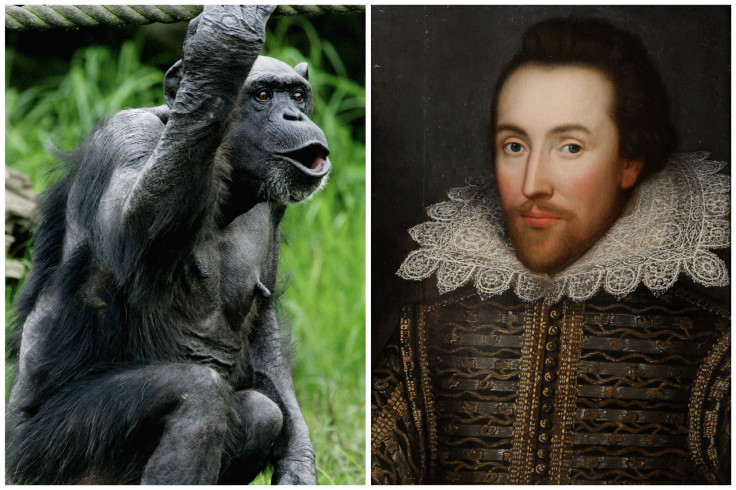
A new study demonstrates that a monkey could type out the works of Shakespeare, just not within the lifespan of our universe.
According to the Infinite Monkey Theorem, a monkey randomly typing for an infinite amount of time could eventually produce the complete works of Shakespeare purely by chance.
A new mathematical study recently confirmed the theory, but cautions the theory is somewhat misleading.
As Associate Professor Stephen Woodcock from the University of Technology Sydney (UTS) explains in an article published on Phys Org, the theorem "only considers the infinite limit, with either an infinite number of monkeys or an infinite time period of monkey labor."
The study, published in Franklin Open, calculates that even if the entire global population of around 200,000 chimpanzees typed one key every second, they would still have almost zero chance of reproducing Shakespeare's complete works before the universe ends. The likelihood of typing a single word, like "bananas," within a monkey's lifetime is about 5%, but longer texts are practically impossible.
"It is not plausible that, even with improved typing speeds or an increase in chimpanzee populations, monkey labor will ever be a viable tool for developing non-trivial written works," the authors concluded.
"This finding places the theorem among other probability puzzles and paradoxes—such as the St. Petersburg paradox, Zeno's paradox, and the Ross–Littlewood paradox—," Woodcock explained, "Where using the idea of infinite resources gives results that don't match up with what we get when we consider the constraints of our universe."
© 2025 Latin Times. All rights reserved. Do not reproduce without permission.





